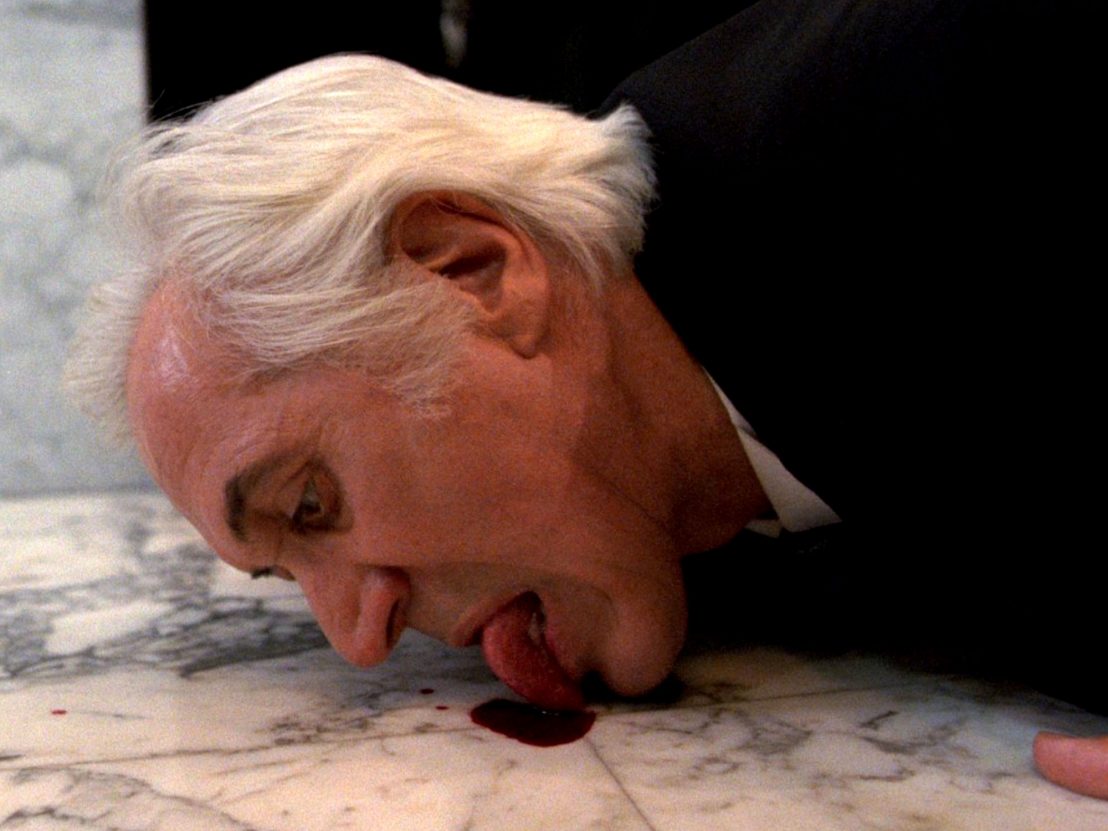
Guillermo del Toro’s heart has always belonged to monsters. The charismatic filmmaker has long nurtured a deep affinity for the grotesque and macabre, resulting in films that depict them in unusually empathetic ways. “When the monster has a dimension that allows you to humanise it,” del Toro has said, “that’s the route I usually want to go.” This has led to him becoming one of the most influential and revered voices in contemporary genre cinema. Brilliant though his blockbusters, Blade II and Pacific Rim, are, it is in radically calibrating the flaws of man with the virtues of monster that his artistry reaches truly sublime heights.
The foundation for this is del Toro’s 1993 debut feature, Cronos. An arresting, beautiful reimagining of the vampire legend, the film brought a Latin flair for magic realism to the table while outlining thematic interests that would blossom into career-long obsessions. Sure, the dialogue and visual effects aren’t quite up to his later standards, but even then the director’s singular vision manages to supersede his shaky grasp, making for a viewing experience that holds up surprisingly well over two decades later.
Cronos tells the story of Jesús Gris (Federico Luppi), an elderly shop owner who lives with his wife (Margarita Isabel) and their granddaughter Aurora (Tamara Shanath). One day, he stumbles upon a statue that’s filled with roaches and concealing a strange “toy.” The toy turns out to be a device that bestows immortality to whomever uses it, so long as they provide the necessary human blood to perform its function. Jesús naturally succumbs to the device’s promise of virility, but this puts him in the crosshairs of Angel (Ron Perlman), a dim-witted criminal who is working to retrieve the device for his wealthy, ailing uncle De la Guardia (Claudio Brook).
Jesús, played with extraordinary warmth by the late Luppi, remains one of the more complex “monsters” in del Toro’s oeuvre. A kind-hearted man at the film’s outset, he struggles to reconcile the twilight of his life with that of Aurora, the recently orphaned child he’s been tasked with raising. He sees the Cronos device not as an excuse to act recklessly, but rather a means to alleviate himself of the pitfalls of old age, so that he may be around to give Aurora the supportive upbringing she deserves. These are about as admirable as intentions come in horror, and del Toro is acutely aware of this, revelling in our fondness of the character as he devolves into the vampiric equivalent of a drug addict – deteriorating in health and desperately licking blood off of bathroom floors to quench his thirst.
Instead of succumbing to mere genre spectacle as the story progresses, however, del Toro keeps this familial thread at the forefront. Jesús’ gruesome transformation sees him lose sight of everyone he loves except the loyal Aurora, who agrees to hide him from the rest of the world. There’s a gently ironic role reversal at play here, as Jesús’ desire to raise his granddaughter leads to her caring for him instead. She is the totem that anchors his waning humanity, and their interactions play as a modern spin on the infamous pond scene from one of del Toro’s favourite films, Frankenstein – especially in instances where eeriness clashes with innocence, as when Jesús is forced to sleep in Aurora’s toy chest to avoid sunlight. If your heart doesn’t break the moment she hands him a plastic doll for company, you might want to seek out a cardiologist.
If on the surface Aurora may appear underwritten (she utters only one word: “Grandpa”), she stands out as the director’s urtext for youthful ingenues. It is through her doe eyes that we see the harsh realities of this dark fairy tale unfold. As a framing device, it allows del Toro to approach his monster(s) from a place of childlike wonder and tenderness, without having to account for the corrupt inclinations that come with adulthood. Or, in the case of Cronos, The Devil’s Backbone, and Pan’s Labyrinth (often cited as the director’s unofficial trilogy), the inclinations that come with his human villains.
Angel, played with snarling bravado by Perlman, provides the film with its true “monster”, surpassing Jesús in brutality and sadism despite the fact that the latter has become a literal bloodsucker. Angel pines for the device as a means of material power, and his attempts to recover it, including beating Jesús to a pulp (twice) and driving him off a cliff, are the crucial instances where the film suggests that mortal sins like envy and lust are the real threats to look out for.
That del Toro keeps from descending into caricature on either side of the moral compass speaks to his instinctual grace as a storyteller, even at a young age. For all the pain that Angel inflicts, he too is given empathy by way of his uncle, who berates and bullies him into finding the Cronos device. We see why he is such a mess, even as we condemn his actions. The opposite can be said for Jesús, who, at one point, entertains the notion of killing Aurora when she accidentally cuts her hand and draws blood. That he forces himself to resist out of love is perhaps the film’s (and the director’s) single greatest distillation of humanity overcoming monstrosity.
There are further eccentricities to unravel in Cronos, including the religious subtext of Jesús’ character (immortality, resurrection) and the visual nods to Hammer Horror (with its emphasis on reds and blues), but it is ultimately the search for the man in the monster – and the monster in man – that cements the film as a superlative vampire tale and a profound mission statement for del Toro’s career.
Published 3 Feb 2018

Guillermo del Toro choreographs a ballet with giants and offers one of cinema’s most beautiful definitions of love.

By Luís Azevedo
To celebrate the release of The Shape of Water, we enter the fantastical world of the inimitable Mexican maestro.

The great Guillermo del Toro talks about his magnificent Gothic ghost story.